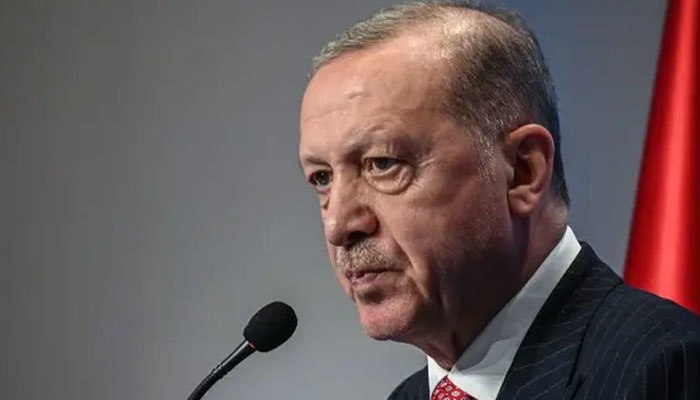Erdogan’s presidency is primarily in Russia’s interest

All indications regarding the nature of relations between Ankara and Moscow confirm that the victory of the outgoing President Recep Tayyip Erdogan in the second round of the presidential elections, which will be held next Sunday, is basically in the interests of Russia.
“The outcome of Turkey’s presidential election will have an impact on various Moscow-related issues, from Syria to Ukraine, NATO, and energy, leading one to believe that President Vladimir Putin would have voted for Erdogan if he had been allowed to vote in the runoff.”
“Despite the rivalry between the two historical empires on both sides of the Black Sea, Putin and Erdogan, who have held the reins of power for many years, have forged a close personal relationship that has taken on even greater importance since Moscow found itself increasingly isolated in the West since it began its invasion of its western neighbor Ukraine in early 2022.”
For Putin, Erdogan is a “special case” because “several issues can be agreed with him,” said Fiodor Loukianov, a political scientist who is close to the Kremlin’s decision-making circles.
“The long-standing personal relationship between the two presidents contributes greatly. They understand each other well.”
In the first round of voting on May 14, Erdogan broke the polls by coming out ahead of challenger Kemal Kilicdaroglu. In the second round on June 28, Erdogan appears more likely to stay an extra five years as master of the presidential palace in Ankara.
A Western diplomat who has worked in Moscow and the Turkish capital says the Russians “breathed a sigh of relief” after the first session.
How would they prefer a president other than Erdogan, the leader of NATO’s second military power after the United States, who last week chose to speak, on CNN in particular, about his “special relationship” with Putin?
“We are a strong country and we have a positive relationship with Russia… Russia and Turkey need each other in every field,” Erdogan said.
Asked about the reasons for the two leaders’ understanding, Kremlin spokesman Dmitry Peskov said this week that Putin and Erdogan were “two statesmen whose words they respect.”
In contrast, Kilicdaroglu infuriated Russia by accusing it of interfering in the election campaign in early May, a charge Moscow has vehemently denied.
Personal loyalty
He said a victory by Kilicdaroglu in the election would pose a “danger” to the future of Russian-Turkish relations.
For example, he argues that such a win could improve relations between Ankara and some of its NATO allies, strained over Erdogan’s purchase of S-400 air defense systems from Russia, which has drawn widespread criticism from allies, particularly the United States.
While the Kremlin asserts that it is not on the side of one candidate over the other, the signs are not hidden.
“In late April, sharing video technology at the inauguration of a Russian-built Turkish nuclear plant, Putin praised Erdogan in the midst of his election campaign.”
He said the station “is a compelling example of everything you, President Erdogan, are doing for your country to develop its economy and for all Turkish citizens … I want to say this frankly: You know how to set ambitious goals and pursue them with confidence.”
Putin is “known for his personal loyalty … to those who behave similarly to Russia,” Loukianov said.
“But relations have not always been at their best, and they were strained in 2015 when Turkey shot down a Russian warplane on its border with Syria, taking part in Moscow-initiated operations in support of President Bashar al-Assad’s regime, against which Ankara has been a vocal opponent and the armed opposition.”
Putin described the downing as a “stab in the back.”
“Less than a year after the incident, however, Putin was the first foreign president to call Erdogan to show his support after a failed coup against him.”
Since then, the two presidents have expanded their cooperation on several issues, including Syria.
Interest relationship
The rapprochement between the two authoritarian leaders has been reinforced by the growing tension in their relationship with the West.
Independent Russian analyst Arkady Dubenov says the two presidents are “incredibly similar in political mindset, style, and relations with the world,” such as their “contempt for the liberal values of the West.”
The relationship with Erdogan has assumed increasing importance to Putin as he has faced isolation from Western countries since the invasion of Ukraine began in late February 2022.
He stressed Moscow’s need for “predictable relations” with Ankara.
Although Turkey provided Ukraine with drones to counter the invasion, it refrained from joining Western sanctions against Moscow. “This allowed Ankara to mediate on issues related to the conflict, notably a deal to export Ukrainian grains via the Black Sea.”
“Turkey benefits from sanctions on Moscow to attract money and investment from wealthy Russians, as well as access to oil at discounted prices.” “For its part, Russia benefits by keeping an open door for imports complicated by Western sanctions.”
The Western diplomat stresses that the Erdogan-Putin relationship is not so much a personal passion as a “pure interest relationship.”
“They’re very good at separating, putting aside differences and working together where their interests converge,” he said.












